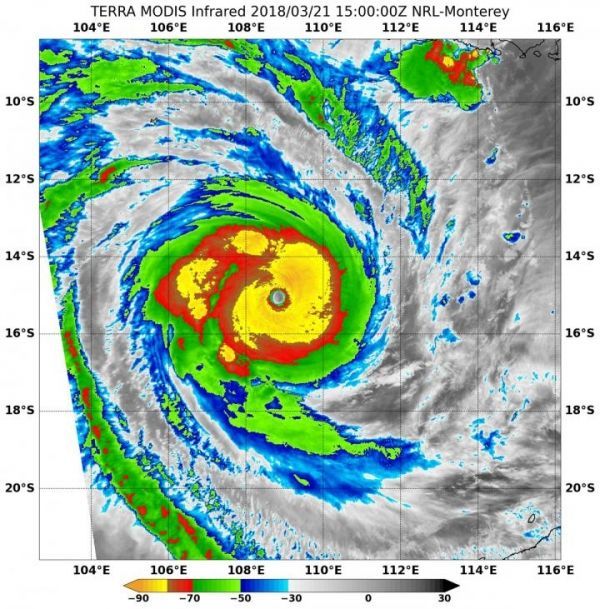Queen’s University researcher Xiaolong Yang and his research team have developed a light emission-based biosensor that uses firefly luciferase (the enzyme that allows fireflies to light up) to monitor cancer cell activity and help find new ways to fight the spread of cancer.
articles
NASA Infrared Imagery Shows a Powerful Tropical Cyclone Marcus
Tropical Cyclone Marcus continues to strengthen as it moves further away from Western Australia. NASA's Aqua satellite analyzed the system in infrared light to find the strongest part of the hurricane.
A Natural Fertilizer
It’s long been known that sharks help nourish coral reefs, but exactly to what extent has never been scientifically mapped out — until now.
Conservation Costs Can Be Higher Than Bargained For
Sweeping policies that reward people in environmentally sensitive areas for returning their farmlands to nature have been lauded as ecological triumphs. But a new Michigan State University study shows that over time some participants may become conservation martyrs.
Foresters Too Silent on Tech Advances
Forest experts need to interact more with farming and mining businesses, agriculture and finance ministries in order to accelerate the use of scientific tools to restore global forests.
The Environment Determines Caribbean Hummingbirds’ Vulnerability
Hummingbirds' specialization and vulnerability are often predicted based on their physical traits. Scientists now found that this is not the case for hummingbirds on the Caribbean islands. Instead, the bird's environment is the determining factor. The new study was led by scientists from Center for Macroecology, Evolution and Climate, University of Copenhagen, and published today in the scientific journal Proceedings of the Royal Society B.










